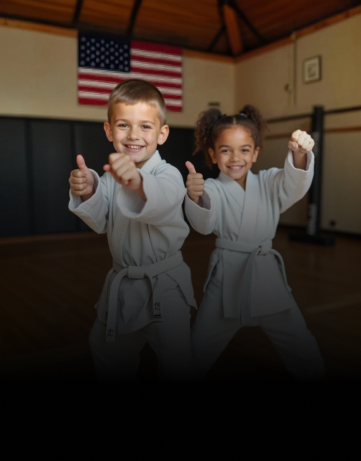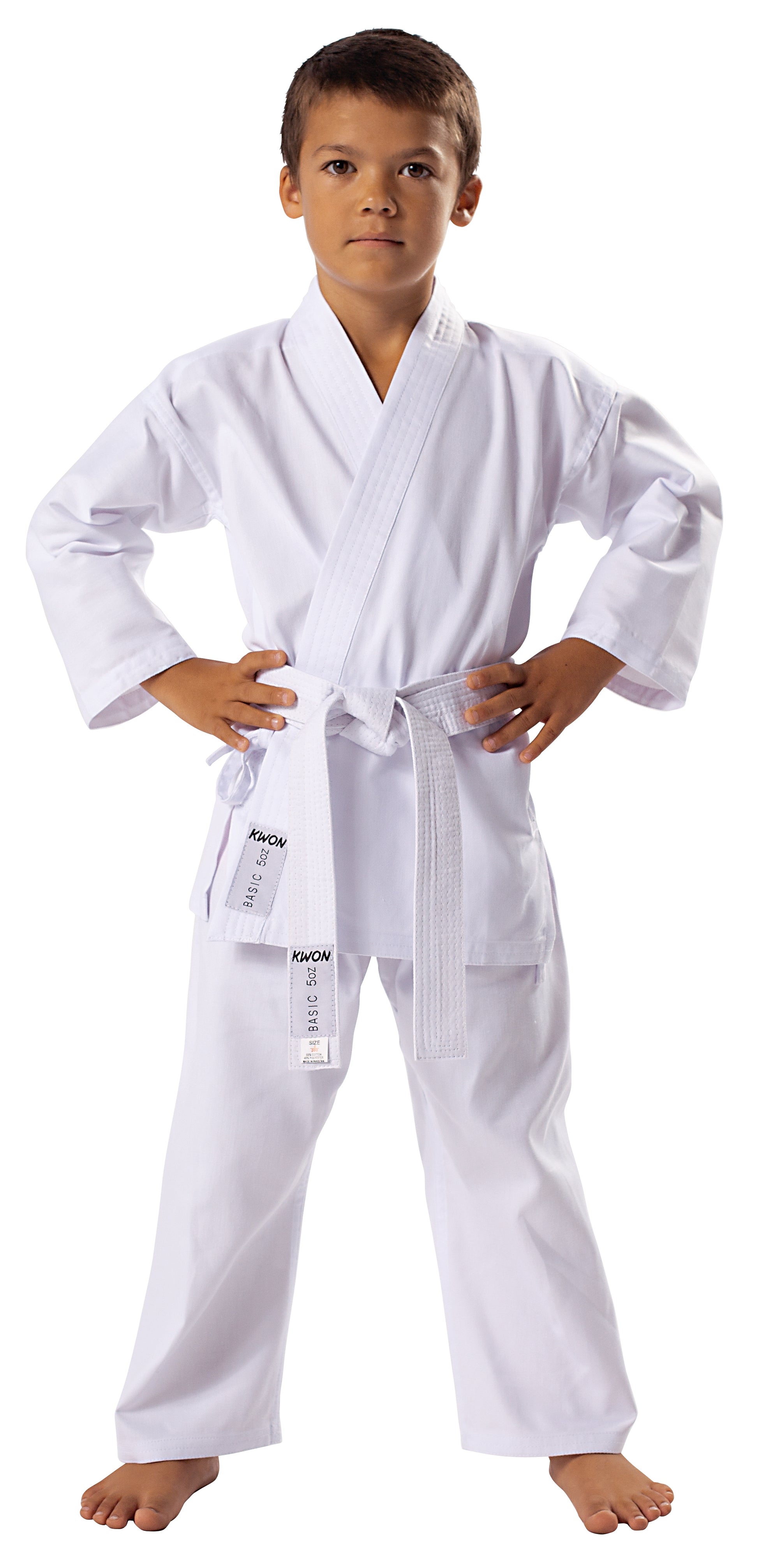Martial Arts for Kids – Build Self-Esteem and Focus with Fun Lessons
Martial Arts for Kids – Build Self-Esteem and Focus with Fun Lessons
Blog Article
Exactly How Karate for Kids Can Boost Self-confidence and Discipline in Young Martial Artists
Karate for youngsters uses an unique opportunity to develop self-confidence and discipline in young martial artists. As they discover brand-new strategies and face obstacles, they not only get abilities yet additionally develop a strong sense of self-respect. This structured setting urges them to value the trip of improvement. How does this training equate into their daily lives? Discover the deeper links that make karate even more than just a sport.
The Relevance of Self-confidence in Childhood Development
Self-confidence is a vital building block in youth growth. When you support your kid's self-confidence, you equip them to deal with difficulties, take dangers, and express themselves freely. Kids with self-confidence are much more prepared to explore social situations and brand-new tasks, which can lead to lasting relationships and beneficial experiences.Encouraging your kid to get out of their comfort area cultivates strength. They discover that failure isn't the end yet rather a stepping rock to success. By celebrating their achievements, regardless of just how little, you help them recognize their capacities and worth.In this journey, assistance and favorable reinforcement from you play an important duty. Whether it's with praise or merely being existing, your participation enhances their confidence. As they grow, this confidence becomes a long-lasting possession, equipping them to browse both obstacles and possibilities with a strong feeling of self.
Exactly How Martial Arts Instructs Discipline and Emphasis
Karate assists you build technique and focus via its structured training routine. As you practice mindfulness throughout each session, you'll learn to focus better both on and off the floor covering. Plus, establishing and achieving goals in martial arts reinforces your capability to remain mindful and fully commited.
Structured Training Regimen
While you participate in karate training, you'll quickly uncover exactly how an organized regimen imparts discipline and focus in young practitioners. Each class complies with a specific style, consisting of workouts, technique practice, and sparring. This uniformity educates you to appreciate the process and devote to improvement. As you learn forms and methods, you create a feeling of responsibility for your own progress.The organized atmosphere urges you to set goals, whether grasping a brand-new belt or developing a kata. You'll find that staying concentrated during classes and drills hones your focus. The technique you cultivate in karate expands beyond the dojo, positively impacting your schoolwork and everyday routines. Each session strengthens the value of devotion, aiding you expand right into an extra self-displined person.
Mindfulness in Technique
As you exercise martial arts, you'll locate that mindfulness comes to be an important part of your training. Each relocation requires your full attention, helping you stay concentrated on the present minute. You'll discover to ignore diversions and focus on your breathing, motions, and intents. This increased awareness develops your reflexes and improves your discipline.During sparring or types, you'll find the value of being emotionally existing - Karate Salisbury MD. You'll observe just how this focus not only improves your technique but also builds your self-confidence. By exercising mindfulness in martial arts, you cultivate patience and resilience, important traits that expand past the dojo. In this method, karate teaches you to harness your mind, helping you create a regimented method to challenges both on and off the floor covering

Setting Goal Techniques
Establishing goals in karate isn't practically making belts; it's an effective way to grow discipline and focus. When you establish specific, attainable targets, you develop a roadmap for your progress. For instance, rather than simply aiming to enhance your kicks, attempt concentrating on mastering a specific strategy each month. This strategy maintains you motivated and engaged.Breaking down larger goals right into smaller sized, convenient steps helps you track your development and commemorate tiny victories in the process. Whether it's improving your position or enhancing your sparring endurance, every goal strengthens your dedication. As you attain these objectives, you'll build confidence in your skills and develop a strong sense of discipline that extends beyond the dojo into everyday life.
Building Resilience Through Martial Arts
Martial arts, particularly karate, provides kids a distinct chance to develop resilience in a supportive environment. In courses, they encounter obstacles that press their limits, whether it's competing or understanding a brand-new method with a partner. Each trouble, like a missed out on kick or a shed match, becomes a chance to find out and grow.As they exercise, youngsters discover to accept pain and keep trying, also when points get tough. They directory uncover that failing isn't the end; it belongs to the trip. This mindset aids them get better stronger, not simply in the dojo, however in everyday life.With each obstacle they conquer, your child constructs self-confidence in their ability to tackle barriers, fueling their resolution. With karate, they'll comprehend that resilience isn't just concerning physical toughness; it has to do with mental grit and willpower, equipping them to face whatever life tosses their way.
The Duty of Respect in Martial Arts Training
Regard is a foundational concept in karate training, promoting a society of self-control and sociability among pupils. When you step onto the dojo flooring, you're not just discovering techniques; you're likewise learning to value your trainers, peers, and the art itself (Karate Salisbury MD). Bowing at the start and end of class isn't simply a rule; it signifies your acknowledgment of others' initiatives and dedication.As you develop common regard, you'll find it boosts your knowing experience. You'll pay attention more attentively to your teacher and gain insights from fellow trainees. This setting encourages useful objection and support, permitting everyone to grow together.Moreover, regard grows self-discipline. Acknowledging the worth of difficult work and humbleness aids you remain concentrated on your training. Consequently, this regard converts into your daily life, enhancing your communications and relationships outside the dojo. Through karate, you discover that regard is essential for personal growth and neighborhood structure
Achieving and setting goals Success in Karate

Social Abilities and Team Effort in the Dojo
While training in the dojo, kids normally establish necessary social skills and teamwork capacities. As they practice alongside peers, they find out to interact efficiently, share space, and assistance each other. Each class provides chances for cooperation, whether it's during companion drills or team exercises. This synergy promotes friendships and develops a sense of belonging, making the dojo a nurturing environment.Kids additionally get valuable problem resolution skills. When they run into difficulties, such as disputes throughout sparring, they learn to browse these situations constructively. They exercise patience and empathy, understanding that everybody has various staminas and weaknesses.Moreover, joining group tasks cultivates a sense of liability. You'll see your kid nfl scoreboard finding out to rely upon colleagues and take responsibility for their function in a team. These experiences not just boost their martial arts trip however additionally furnish them with social tools they'll lug right into other locations of life.

The Long-Term Conveniences of Martial Arts Beyond Childhood
As youngsters expand up and change right into adulthood, the benefits of karate prolong much past the dojo. You'll locate that the technique and focus learned through karate can translate into your academic and expert life. Establishing and accomplishing objectives in fighting styles cultivates a solid job values, which can press you to succeed in any kind of endeavor.Moreover, the self-confidence obtained from understanding strategies and competing can boost your self-worth, aiding you take on obstacles head-on. This strength ends up being vital as you encounter the unpredictabilities of adulthood.Additionally, the social abilities established with team effort and friendship in the dojo can result in better relationships in both personal and professional rounds. You'll discover to interact efficiently, resolve problems, and construct a helpful network.Ultimately, karate shapes not just experienced martial artists, yet well-shaped people ready to take on the globe.
Regularly Asked Concerns
What Age Is Best to Start Martial Arts for Children?
You can start karate as early as age four or 5, however it typically depends upon your kid's maturity and passion. Locating a course that suits their age and energy degree makes a large read review distinction.
Are There Any Wellness Perks From Practicing Martial Arts?
Yes, practicing karate offers countless wellness benefits. You'll enhance your strength, versatility, and sychronisation while enhancing cardiovascular health and fitness. Plus, it boosts emphasis and mental health, making it a wonderful selection for overall physical and mental wellness.
How Commonly Should Children Attend Karate Courses?
You should motivate your youngsters to participate in karate classes at least a couple of times a week. Consistency assists them discover strategies effectively and establish abilities, making their experience extra enjoyable and gratifying over time.
Can Karate Assist With Managing Anxiety in Kid?
Yes, martial arts can aid manage anxiousness in children. It teaches focus and self-discipline while supplying a risk-free electrical outlet for power. You'll see your youngster expanding extra confident and calm as they exercise routinely.
What Gear Is Needed for Kids Starting Karate?

Report this page